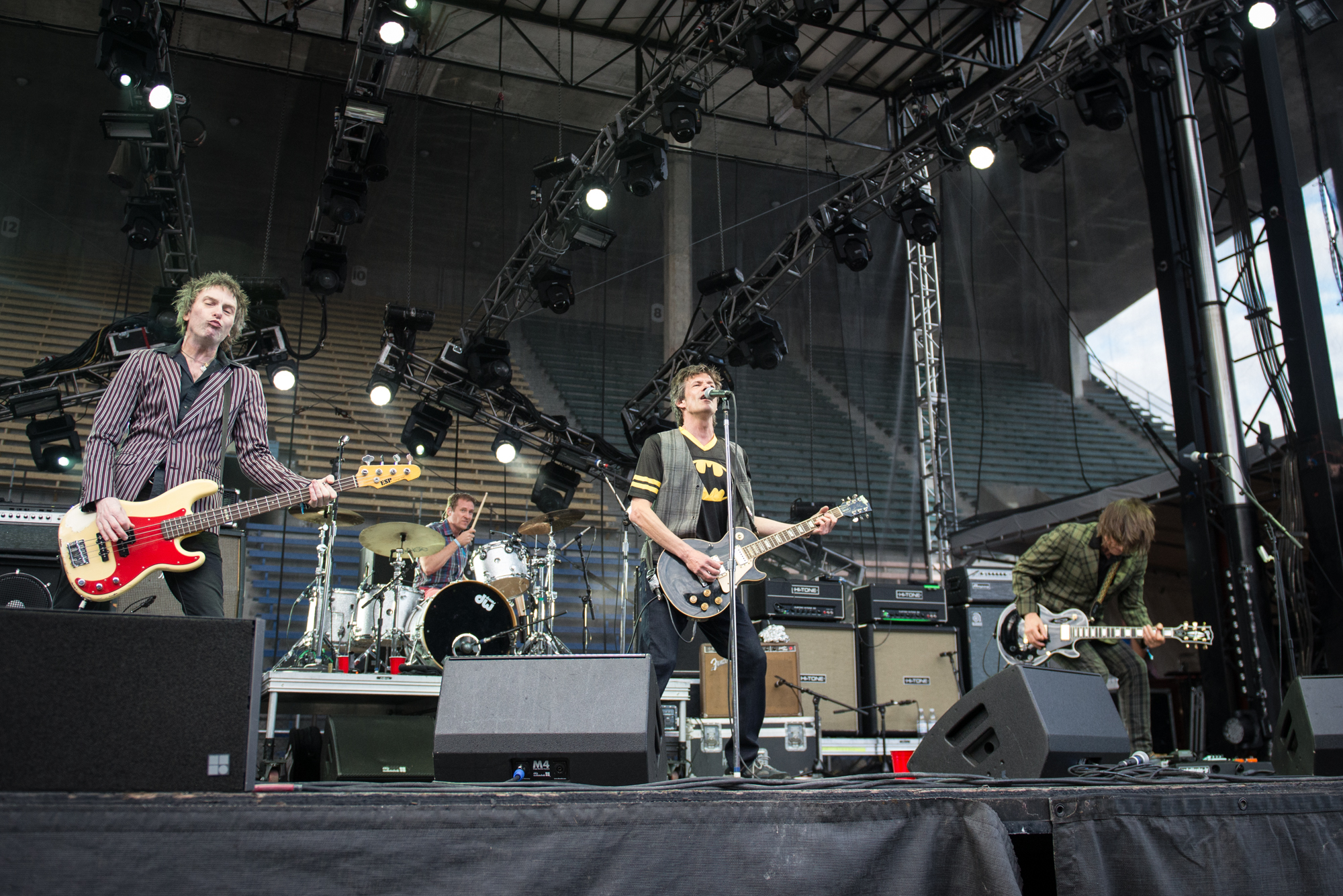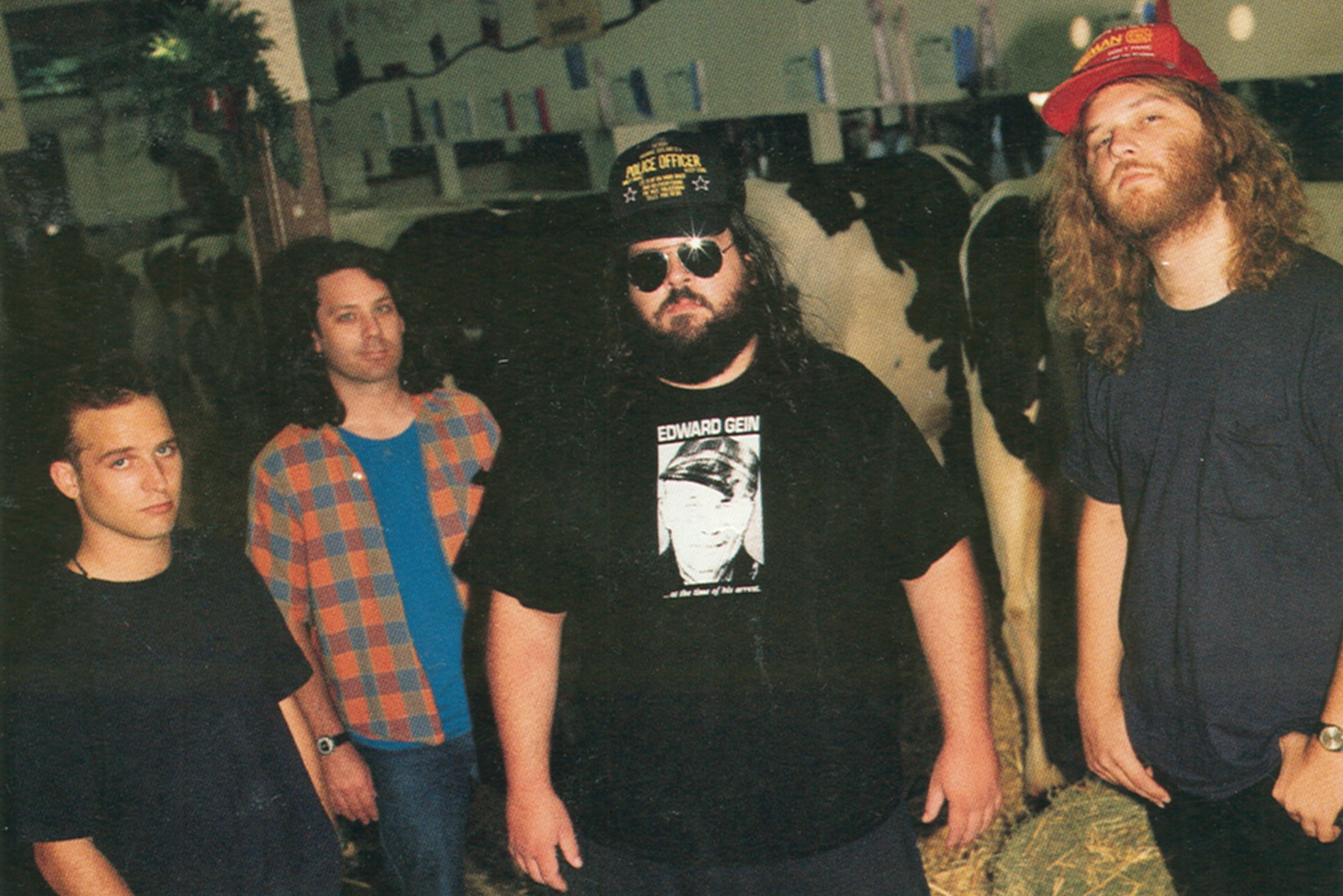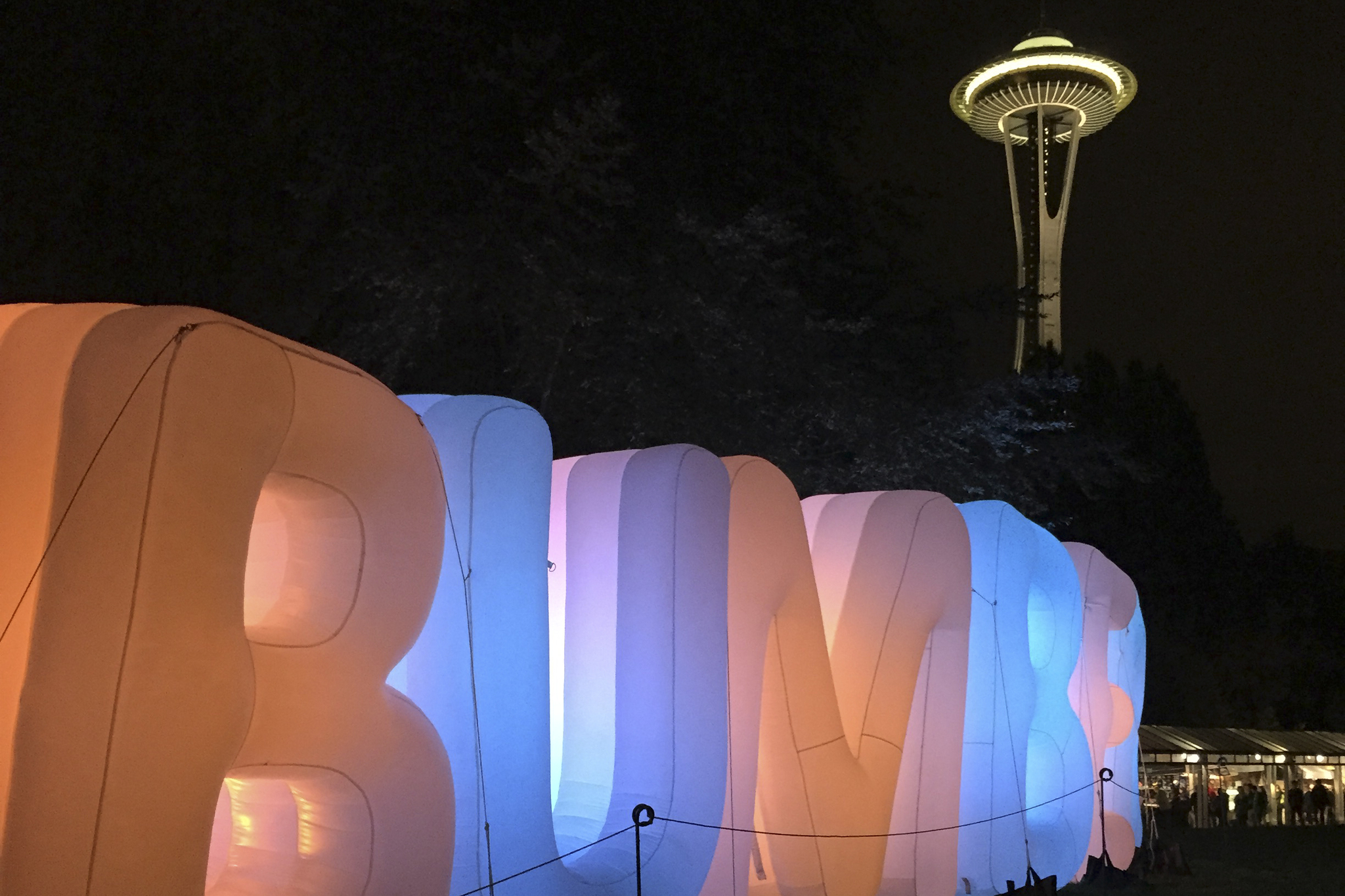It wasn’t raining as Sunday’s lineup of music began, which made it seem fitting to start the day with the sunny sounds of Big Star’s lushly orchestrated third LP, Sister Lovers, in the Bumbershoot Music Lounge. The record, which was almost not released when it was recorded in 1974, is a power-pop masterpiece, named one of Rolling Stone’s 500 Greatest Albums of All Time, despite the fact that it sounds like a band coming apart at the seams. With three of the four founding members having passed away, an all-star lineup including Jon Auer, Chris Stamey, and Mitch Easter, joined Big Star drummer Jody Stephens for the performance, which also included a rotating lineup of singers, as well five members of the Seattle Rock Orchestra to provide the score. Though it’s been 40 years (!) since the album was recorded, time has been kind to the songs, and it’s easy to see why so many music fans still gravitate to the album. It breaks your heart, delicately, with gorgeous melodies to ease the pain.
Jon Weisnewski, singer-guitarist of Seattle stoner-rock trio Sandrider, said he grew up coming to Bumbershoot as a teenager and was humbled by playing the festival this year as an adult. The band, which has two records out on local indie Good to Die, doesn’t mess around much with dynamics, but that’s not the point. It focuses its energy instead on sludgy grooves and neck vein-bulging screams. The heavy, steady riffs were a full-frontal assault and as the sun began to move from behind the clouds, the fans closest to the stage gave way to a circle pit.
As Portland’s Red Fang took the stage, the four members gathered around the drum riser and shook hands. “Have a good show,” drummer John Sherman said to each, and off they went. Its style of hard rock isn’t dissimilar to Sandrider’s, but also includes psychedelic overtones and more nuance, especially with the odd time signatures it’s fond of riffing in. Also like Sandrider, the vocal duties are shared between two members. The band’s relentless touring schedule has made it a tight and efficient live machine, seguing from song to song with little banter between, focusing mostly on pummeling all comers with fuzzy jams and festival-ready shout-along choruses.
This week’s Seattle Weekly cover girls Luscious Jackson haven’t been to Seattle in 15 years, but in fairness, they also haven’t been together for most of that time. Three of the four original ladies are still in the group—bassist Jill Cunniff, guitarist Gabby Glaser, and drummer Kate Schellenbach—and they were joined onstage by a pair of touring musicians and a DJ. It took them a few songs to get warmed up, but by the time they hit their first hit, “Naked Eye,” from 1996’s Fever In Fever Out, they seemed find their groove.
Negativland were definitely not what the EDM kids were expecting. The experimental San Francisco sound collagists don’t make music as much as sonic mayhem: audio think pieces that are subversive and enlightening, vexing and revelatory. The foundation for most of its work is some kind of monologue, be it news clip, found dialogue, or, in the case of the opening track, an excerpt from a Marc Maron podcast accompanied by squeals, squelches, and sound effects. Dressed in matching grey and black button-up shirts, the band’s three primary members sat behind a long table covered in a tangle of cords, effects boxes, mixers, and more, tweaking knobs like mad scientists, while a laptop-working fourth member controlled the video screen behind them. Negativland are political to the core and even Bumbershoot wasn’t off limits. Between songs came a sponsorship message accompanied by a giant Chipotle logo, a nose-thumbing message to the festival for including corporate food sponsors amongst their vendors.
My day ended with The Replacements, who are sort of like the replacement Replacements, not that the crowd seemed to mind. The legendary band, which stumbled drunkenly out of the Minneapolis underground and into alt-rock history in the early 1980s, had long resisted a reunion but finally caved in 2012 and have been occasionally on the festival circuit since. The current lineup features two original members: singer-songwriter Paul Westerberg and bassist Tommy Stinson. While there’s no denying the band’s enduring influence, this version of the ‘Mats hardly resembles the ramshackle lineup that in 1984 would have been lucky to complete a show without getting into a fight or falling down drunk. There’s little chance of that in 2014. As well, seeing the band perform in a soccer stadium while fans bat around a oversized beach balls is a weird anomaly, and one that Stinson took the air out of quickly. “Let’s have that balloon,” he demanded. “Send it my way. I’ve got a knife!” But there was also no denying how great the songs still sounded, and Westerberg’s rasp hasn’t changed with age. The band played through the hits, so to speak, with a raucous energy: “Favorite Thing,” “Bastards of Young,” “Can’t Hardly Wait,” “Alex Chilton,” all peppered by Westerberg’s perfect one-liners: “We are The Cements no more,” he announced as they arrived on stage before adding, “We are The Replacements.” Later: “We’re strutting our elderly stuff.” And finally: “One of these days, when we grow up, they’ll let us play in the dark.”








